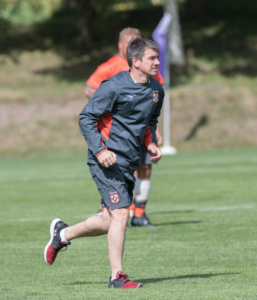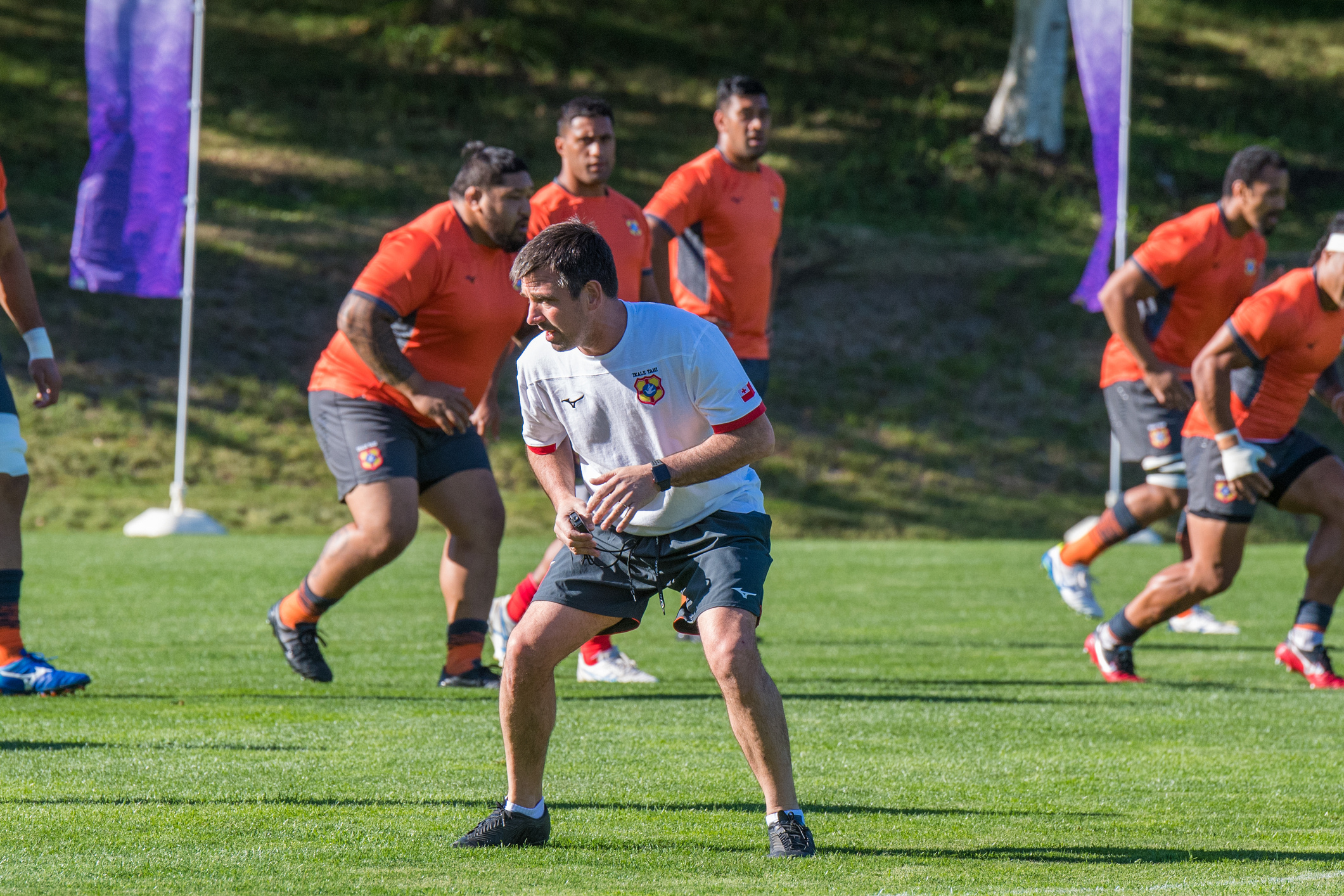Alejandro Pastor is the Sports Science Manager for LATAM at Catapult Sports and a graduate of our MSc in Performance Coaching.
Below, Alejandro shares his experiences from a career in sports science and performance coaching spanning over 25 years.
The Start of a Coaching Journey
Alejandro’s strength and conditioning career began in 1998 at a Rugby Union Amateur Club. It was his passion for understanding game demands that fueled his career and academic pursuits. “I’ve always been interested in game demands, mostly around rugby union and football,” he shared. Alongside working in S&C Alejandro shared that he “also worked as a lecturer at Universities teaching exercise physiology for 5 years.”
Having worked in the sports science field for over 25 years Alejandro has had the opportunity to work with a vast variety of teams across all levels from grassroots to national teams. With experience comes knowledge and Alejandro shared some of the key lessons he took from his early coaching career that have stayed with him to this day. “One of the main lessons was to understand cultural backgrounds and the level of competition that teams and players are involved in,” he explained. Adaptability has also been a key takeaway. “Another key factor is to be adaptable to the staff needs. Sometimes we need to wear multiple hats when we are inside a team structure. Having a ‘Generalist’ background is beneficial within some organisations,” he added.
Working with Catapult Sports
As the Sports Science Manager for LATAM at Catapult Sports, Alejandro oversees a vast and diverse territory, spanning over 30 countries and three primary languages – Spanish, Portuguese and English. His role involves helping to implement GPS technology to help teams and athletes improve performance, support long-term athlete development, and reduce injury risks. “The main goal is to help users and aspirational users implement the technology in a solid and robust way pursuing the 3 basic goals of any coach: 1 – Improve Performance, 2 – Collaborate in the Long Term Athlete Development plan and 3 – Help the athletes to reduce the injury risk and if they suffer any injuries, help them to use this data for creating a good Return to Compete process,” he explained.
Alejandro’s daily work can be separated into office work and on-site work varying from creating strategies for customer success to presenting at events and universities. “On a typical office day, the sports science (customer success) team’s main responsibility is creating a strategy for users/aspirational users to have access to information that will help them to use the technology in a positive way,” he shared. “For that, we create content to educate the colleagues working at different institutions, from football associations to amateur clubs.”
“When we have the opportunity, we visit our clients at their own facility and we deliver meet up. During those small events, we teach them “tricks” about how to use our tech and share info about sports science and training. On some occasions, we present at events like summits, and conferences or deliver a Training Monitoring Module inside universities,” he explained.
 A Player/Context-Centric Approach
A Player/Context-Centric Approach
With over three decades of experience in the sports industry, Alejandro has developed a “player/context-centric approach” to his coaching, focusing on understanding the unique needs of both players and staff. “We need to understand that most of our work is based on the players and staff needs. For that, we need to understand the sports game demands and create a bridge with the sciences that are linked with the sport,” he shared.
His approach begins with the fundamentals of player movement. “I’m a believer that everything starts from the movement capacity of the player; after that, we need to create a ‘Sports-Proof Athlete’ that can survive in a chaotic environment during the length of a full game,” Alejandro explained. To achieve this, he relies on data-driven insights. “At this point, we need to use the data collected from testing, GPS, and video analysis to create a programme based on their individual needs,” he said. “Finally, these plans must follow a control-chaos logic.”
The Evolution of Sports Science
Reflecting on the rapid advancements in sports science, Alejandro highlights the transformative impact of technology in driving growth within the field. “The use of AMS systems, Force Plates, GPS Technology, Sleep monitoring apps/devices, etc. are providing outstanding opportunities to understand training loads and create player profiling,” he noted. “In the near future, we’ll have the chance to have an all-in-one system to collect data and build individual training programmes based on individual data and players’ profiles.”
When integrating data and analytics into performance strategies, Alejandro firmly believes that “context is king.” He emphasised, “We need to understand the sports game demands and coaching vision to create a robust plan. I really like the tactical periodisation approach to be implemented inside a team sports.”
Studying with Setanta
Alejandro also discusses his experience of studying with Setanta.
“My motivation was to study at an institution that is really linked with real sports and receive information from lecturers that are or were involved in team sports,” he said.
“The most beneficial part of studying at Setanta has been the chance to connect with people from other sports and learn these transdisciplinary lessons,” he noted. “The blended learning format (online and onsite classes) was a plus when I had to decide where to do my Masters.
The way of using statistical analysis has been an outstanding pathway that has helped me to elaborate a much better way of doing reports,” he added.
Looking Ahead
As Alejandro looks to the future, his goals are twofold. “My main goal is to work in team sports, (mostly rugby union) in a field-based role,” he explained. He also hopes to play a part in expanding Setanta College’s presence in the LATAM region. “It would be awesome to help Setanta College grow as an ambassador in the region,” he said.
Learn more about our MSc in Performance Coaching.


Leave A Comment